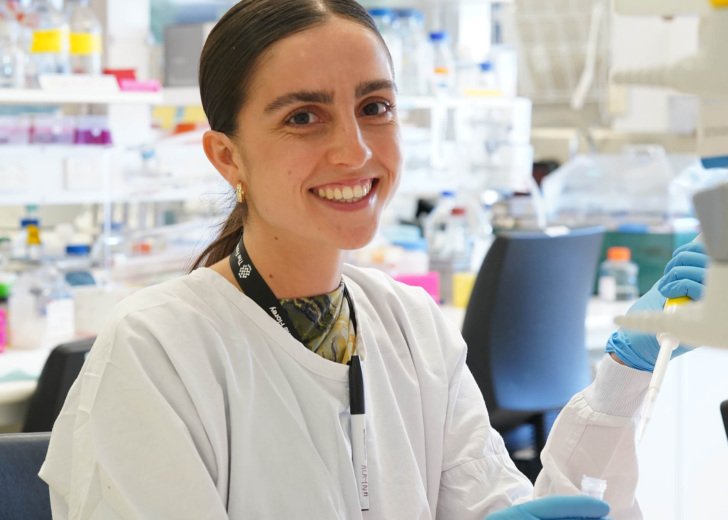Alayna’s work is looking into a treatment for Alzheimer’s disease by targeting a key protein implicated in the progression of the neurodegenerative disease, tau, using new tau-targeting antibodies.
Alayna says the work will provide critical validation of vectorized antibodies. This involves the packaging of the genetic code of tau-targeting antibodies into viruses for delivery to the brain and its neurons.
This genetic code acts as a set of instructions that are read by the cell to produce the antibody.
It is an exciting new frontier for the treatment of Alzheimer’s disease, and also holds the potential to establish a pioneering framework for the design of next generation antibody therapeutics against all other protein-mediated brain diseases. Alayna’s work to target tau and Alzheimer’s disease could therefore be applied to other brain diseases where a culprit protein has been identified.

“I am immensely appreciative for the support provided by the Bethlehem Griffiths Research Foundation,” Alayna says.
“This generous scholarship will enable me to fully immerse myself in my project, providing me with the exciting opportunity to conduct comprehensive and impactful research vital for the future development of Alzheimer’s disease therapeutics.”
Antibodies are specialised immune proteins that are naturally generated in our bodies and can also be made in the laboratory to target and bind specific disease-associated molecules like tau.
Traditional antibodies, however, have limited access to the brain and neurons. This poses an important problem when targeting tau, as disease-associated tau forms are primarily located within neurons.
To overcome this challenge, Alayna’s study will investigate the use of viruses that do not cause disease in humans to package and deliver antibody genes into the brain. She says that such technology harbors the potential to facilitate intraneuronal antibody expression and tau-targeting to ultimately slow disease progression.
Dr Rebecca Nisbet, Alayna’s supervisor and Head of the Florey’s Antibody Therapeutics Group, said:
“Bringing bright students into the field of Alzheimer’s disease research is important if we want to cure the disease. It is wonderful that BGRF supports PhD students as we need to ensure that the next generation of dementia leaders are supported and thrive.”
The Bethlehem Griffiths Research Foundation funds vital research into progressive neurological disorders such as multiple sclerosis, motor neuron disease, Alzheimer’s disease and Parkinson’s disease as well as stroke.